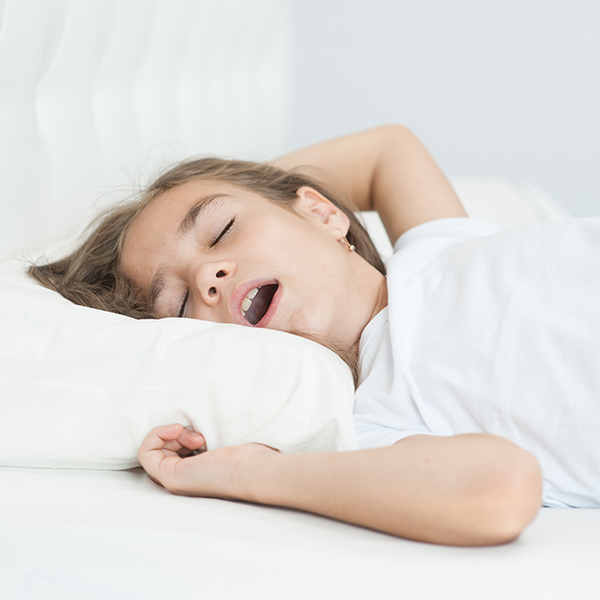Years ago, tonsillectomy in children was largely performed for recurrent tonsillitis. These days this is far outweighed by kids with snoring and sleep apnoea.
Kids often snore, especially if they have a cold, but if your kid’s snoring is associated with some of these symptoms you should consider the possibility of sleep apnoea:-
- Restless sleep, bedclothes everywhere
- Kicking if they co-sleep with you
- Waking during the night
- Sweating
- Gasping, choking noises, especially if after pauses in the breathing
- Unrefreshed by sleep and crabby in the morning
- Difficulty eating bulky foods such as chicken or lamb, unless it is cut up into little pieces. Some kids aged 2 even chew and spit. Some choke on their food. Others live on a mushy diet such as yoghurt and cheese.
Because the tonsil starts to grow rapidly at about 22 month of age, kids with sleep apnoea start to have symptoms around age 2 to 3. Some have been snoring for several years and present with poor concentration at school.
Please see “Other procedures/tonsillectomy” for more information regarding the procedure. Sleep apnoea means low levels of oxygen and this can impair intellectual development. If the diagnosis is not clear cut, consider a sleep study.
Following surgery, the snoring should be reduced or even absent. Swelling may mean this is delayed for a few days. Two months after the surgery, parents often notice a growth spurt and better appetite overall. This is due to the natural production of Growth Hormone in the deep cycle of the child’s sleep. As the sleep cycle has been restored this returns to natural levels.
Some kids are just happier overall at school and at home as their sleep is now refreshing.








